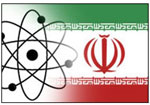 Wall Street Journal: Iran insisted it won’t be rushed into addressing Western suspicions about past military work on its nuclear program, posing a new challenge for efforts to reach a broad nuclear deal with six world powers.
Wall Street Journal: Iran insisted it won’t be rushed into addressing Western suspicions about past military work on its nuclear program, posing a new challenge for efforts to reach a broad nuclear deal with six world powers.
Won’t Rush to Allay Western Suspicions
The Wall Street Journal
By Laurence Norman

TEHRAN—Iran insisted it won’t be rushed into addressing Western suspicions about past military work on its nuclear program, posing a new challenge for efforts to reach a broad nuclear deal with six world powers.
In an interview, Deputy Foreign Minister Majid Ravanchi said Iran stands by its pledge to address all Western concerns about its nuclear program eventually, insisting the country has “nothing to hide.” However he said his government doesn’t want to bring issues up front that should be dealt with at a later stage.
Iran is currently engaged in two separate nuclear negotiations. One track is talks with six world powers aimed at a deal that would prevent Tehran from developing nuclear weapons in exchange for the lifting of international sanctions.
A second track, led by the International Atomic Energy Agency, deals with concerns about past and present nuclear activities. It includes evidence provided by the United Nations nuclear watchdog indicating Tehran’s program may have had a “possible military dimension.” Iran pledged in November to start addressing those issues.
“We are prepared to implement the agreement reached with IAEA, but it takes some time,” Mr. Ravanchi said. “We understand that there are sensitive issues…of concern to the other side, but you have to take one step at a time. You should not rush.”
Tehran recently agreed to address for the first timeone area of concern—agreeingto provide, by May 15, for the first time information to the IAEA so it can assess possible work on detonators that could be used to trigger a nuclear weapon.
Western diplomats said there are many other issues Tehran must urgently tackle, including giving the IAEA access to the sprawling military site of Parchin, where Iran is suspected of carrying out sensitive explosives work. Iran has also blocked IAEA attempts to interview the suspected head of its weaponization program, Mohsen Fahkrizadeh.
Mr. Ravanchi confirmed that Iran would consider ratifying the IAEA’s Additional Protocol if there is a final nuclear deal with the six powers. That would give the IAEA greater information about Iran’s activities and allow the agency broader inspections rights.
But he stressed the final decision would depend on Iran’s parliament. Iran signed the protocol in 2003 but renounced it three years later.
While the talks with six major powers can advance without the military concerns being fully addressed, Western diplomats hope the two sets of discussions can move in parallel. There are concerns about sealing a full deal with Tehran and lifting sanctions without knowing exactly how close Iran may have come to being able to turn its nuclear technologies into weapons.Iran has repeatedly said its nuclear activities are for purely peaceful purposes
“If the negotiations go very fast, naturally we [will] somehow give some more speed to our work with the agency, but we have to be careful,” Mr. Ravanchi said.
Iran and the six powers prepare to resume talks on a full nuclear deal March 18 in Vienna.
Mr. Ravanchi criticized U.S. officials for their repeated warnings about a possible military option against Iran and for playing down the benefits for Tehran of last November’s interim nuclear deal, that eased sanctions.
“We have said it plainly to the Americans publicly and in private, that things might get out of hand. We cannot guarantee that if they continue with this sort of rhetoric…we will be on a proper track” in the talks.
He said Iran is ready to hold talks with the European Union aimed at facilitating humanitarian aid deliveries to Syria, and stands ready to do whatever needed to improve the situation.
Iran has come under fire in the West for its strong support for the regime of President Bashar al-Assad. But Western diplomats acknowledge Tehran played a significant role in brokering a deal last month allowing aid deliveries to reach a besieged, rebel-held quarter of the city of Homs.
European Union foreign policy chief Catherine Ashton used her first visit to Iran last weekend to press Tehran to redouble efforts to facilitate humanitarian aid. Iran has held talks with Switzerland and Syria on improving the situation.
Iran has played a critical role in the Syria conflict, Western countries say, providing broad military and political support to the Assad regime. Tehran was left on the sidelines of the recent Geneva peace talks but privately many European diplomats believe Iran needs to be at the table in some form to facilitate a peace deal.
Iran denies playing a key military role in the Syrian conflict.
While Mr. Ravanchi said Iran could step up help with humanitarian assistance, he gave no signal Tehran would put greater pressure on Mr. Assad to step down.
“It is not for Iran to decide about the future of Syria, the Syrians themselves should take up the matter and they should decide what they want to do and who should be their president,” he said.


